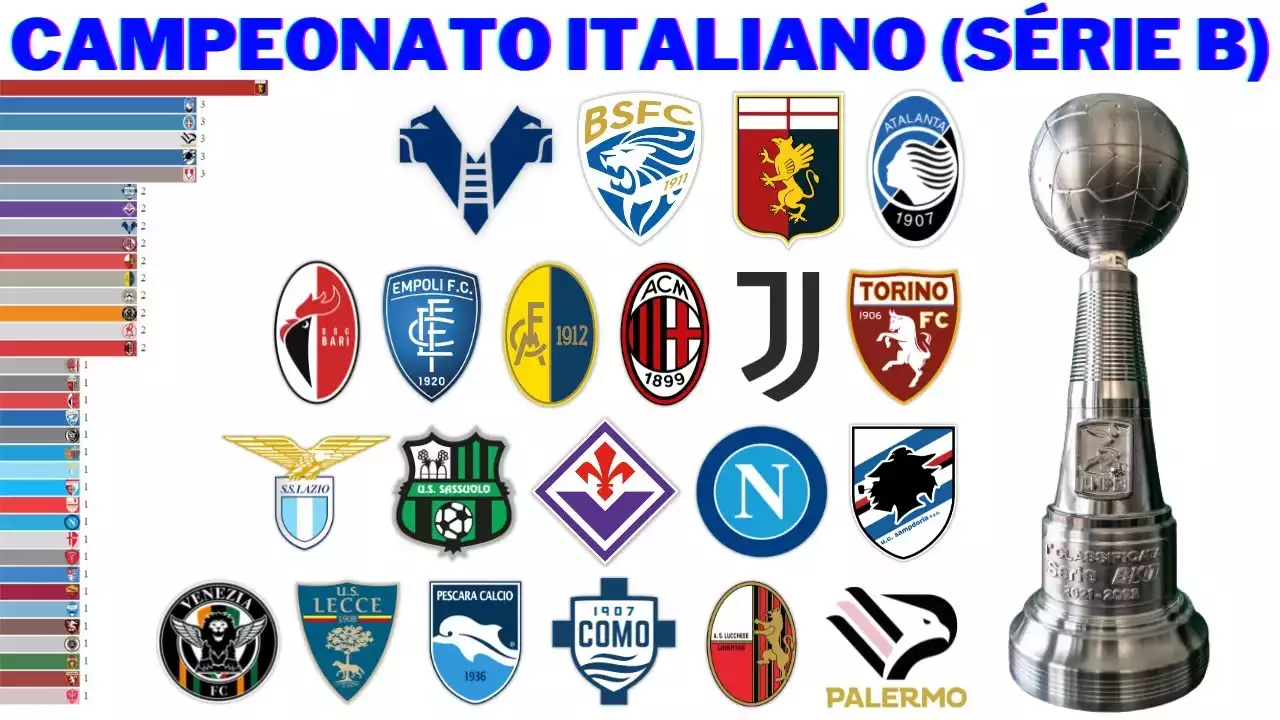The History of the Points System in Série B
The points system in Série B has undergone several changes since its inception in 1971. The original format awarded two points for a win, one point for a draw, and zero points for a loss. This system remained in place until 1994 when the Brazilian Football Confederation (CBF) introduced the three-point system, which is still in use today. Under this system, a team earns three points for a win, one point for a draw, and zero points for a loss.
The rationale behind this change was to incentivize teams to play more aggressively and aim for a win rather than settling for a draw. Moreover, the three-point system rewards teams that perform consistently well over the season, as even a few extra wins can make a big difference in the final standings. However, some critics argue that the three-point system also amplifies the gap between the top and bottom teams, as a single loss can be more damaging than in the two-point system.
Despite these debates, the three-point system has become a staple of Brazilian football and is used in all national and regional leagues. It has also influenced the points systems of other football leagues around the world, including the English Premier League, La Liga, and Serie A.
How the Points System Works
Now that we've covered the background of the Série B points system let's dive into how it works in practice. As mentioned earlier, a team earns three points for a win, one point for a draw, and zero points for a loss. These points accumulate over the course of the season, with each team playing a total of 38 matches (19 home and 19 away). The team with the most points at the end of the season is crowned the champion and promoted to Série A, while the bottom four teams are relegated to Série C.
If two or more teams have the same number of points, the following tiebreakers come into play:
1. Number of wins
2. Goal difference
3. Number of goals scored
4. Head-to-head record
The first tiebreaker is the number of wins, as this indicates a team's ability to convert their performances into victories. If two teams have the same number of wins, then the goal difference is used to distinguish between them. This is calculated by subtracting the number of goals conceded from the number of goals scored. If the goal difference is also the same, then the number of goals scored is used as the third tiebreaker. Finally, if all three tiebreakers are equal, then the head-to-head record between the tied teams is used to determine the final ranking.
Impact of the Points System on Team Performance
The Série B points system has a significant impact on how teams approach their matches and overall strategies. Unlike knockout tournaments, where a single loss can end a team's campaign, the league format allows teams to recover from setbacks and plan for the long term. This means that teams can afford to take calculated risks and experiment with different formations, tactics, and player rotations.
Moreover, the three-point system incentivizes teams to play more offensively and aim for a win, especially in the latter stages of the season. This is because a win can propel a team several places up the table and increase their chances of promotion or avoiding relegation. Conversely, a loss can be disastrous, especially for teams that are already struggling for points.
The points system also affects how teams prioritize their matches, especially in the latter stages of the season. For example, a team that has secured promotion or relegation may field a weakened squad in their remaining matches to rest their key players or give their reserves a chance to prove themselves. On the other hand, a team that is still fighting for a top-four spot or avoiding the bottom four may field their strongest team in every match, regardless of the opposition.
Criticisms and Controversies Surrounding the Points System
Despite its widespread use, the Série B points system has not been immune to criticisms and controversies. One of the main criticisms is that it can be unfair to teams that have performed consistently well over the season but miss out on promotion due to tiebreakers or other factors. This can lead to frustration and demotivation among players, coaches, and fans, especially if the team feels that they were denied promotion due to external factors such as refereeing decisions or fixture scheduling.
Another criticism is that the points system can create a sense of predictability and lack of excitement, especially if one or two teams dominate the league early on. This can lead to lower attendance and viewership for matches that do not involve the top teams, as fans may feel that the outcomes are already predetermined. Moreover, the points system can sometimes reward teams that play defensively and aim for draws rather than pursuing a win. This can result in matches that are less entertaining and engaging for the spectators.
Innovations and Proposed Changes to the Points System
To address some of the criticisms and challenges of the Série B points system, various innovations and proposed changes have been suggested over the years. One such proposal is to introduce bonus points for teams that score a certain number of goals or achieve certain milestones, such as a clean sheet or a comeback win. This would incentivize teams to play more offensively and reward attractive and exciting football.
Another proposed change is to introduce a playoff system for the promotion and relegation spots, similar to the system used in the English Football League. Under this system, the teams that finish in the top four would compete in a knockout tournament, with the winner earning automatic promotion to Série A. This would add an extra level of drama and intensity to the end of the season, as well as provide more opportunities for smaller teams to achieve promotion.
However, any changes to the points system would require careful consideration and consultation with the stakeholders, including the teams, fans, and football authorities. Moreover, any new system should balance the need for fairness, excitement, and sustainability, while also respecting the traditions and values of Brazilian football.
Comparison with Other Football Leagues' Points Systems
As mentioned earlier, the Série B points system has influenced the points systems of other football leagues around the world, including the English Premier League, La Liga, and Serie A. However, each league has its own unique rules and characteristics that reflect its history, culture, and priorities.
For example, the English Premier League uses the same three-point system as Série B but has a different tiebreaker order, with goal difference taking precedence over number of wins. This reflects the Premier League's emphasis on attacking football and goal-scoring, as well as the importance of goal difference in determining league positions.
In contrast, La Liga and Serie A use a two-point system, with a win earning two points and a draw earning one point. This system rewards consistency and defensive stability, as well as reducing the impact of a single loss on a team's standing. However, some critics argue that the two-point system can lead to more cautious and defensive football, as teams may be less willing to take risks and push for a win.
Famous Moments in Série B History Related to the Points System
The Série B points system has witnessed many memorable moments and matches over the years, some of which have gone down in football history. One such moment occurred in the 2012 season, when Portuguesa and Guaratinguetá were fighting for promotion to Série A. Going into the final matchday, Portuguesa had a two-point advantage over Guaratinguetá and only needed a draw to secure promotion. However, in the 91st minute of the match, Guaratinguetá scored a decisive goal, which not only denied Portuguesa promotion but also sent them down to Série C due to the head-to-head tiebreaker.
Another famous moment occurred in the 2017 season, when Internacional, a former Brazilian and world champion, was relegated to Série B for the first time in their history. Despite having a strong squad and a loyal fanbase, Internacional struggled throughout the season and eventually finished in 17th place, two points behind the safety zone. This shock relegation sent shockwaves throughout Brazilian football and highlighted the competitive and unpredictable nature of Série B.
Analyzing Current Standings and Projections Based on the Points System
As of the time of writing, the 2021 Série B season is underway, with 20 teams competing for promotion and survival. After 13 rounds, the standings are as follows:
1. Coritiba - 28 points
2. Goiás - 25 points
3. Botafogo - 23 points
4. Náutico - 22 points
5. Operário PR - 21 points
These standings reflect the impact of the points system on the teams' performances, as well as the importance of consistency and momentum. Coritiba, the current leaders, have won eight matches and drawn four, giving them a three-point advantage over second-placed Goiás. However, the season is far from over, and many twists and turns are expected in the remaining matches.
Based on the current standings and projections, it's likely that Coritiba and Goiás are the frontrunners for automatic promotion to Série A, with Botafogo and Náutico also in contention for the top four. At the other end of the table, Vila Nova, Brasil de Pelotas, and Confiança are in danger of relegation, although there's still time for them to turn their fortunes around.










